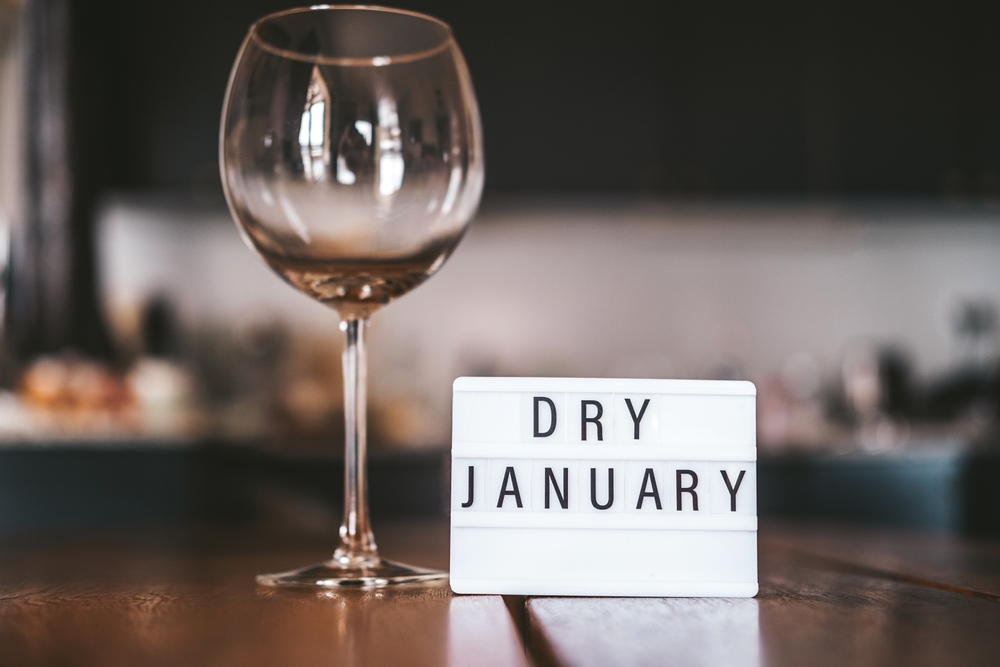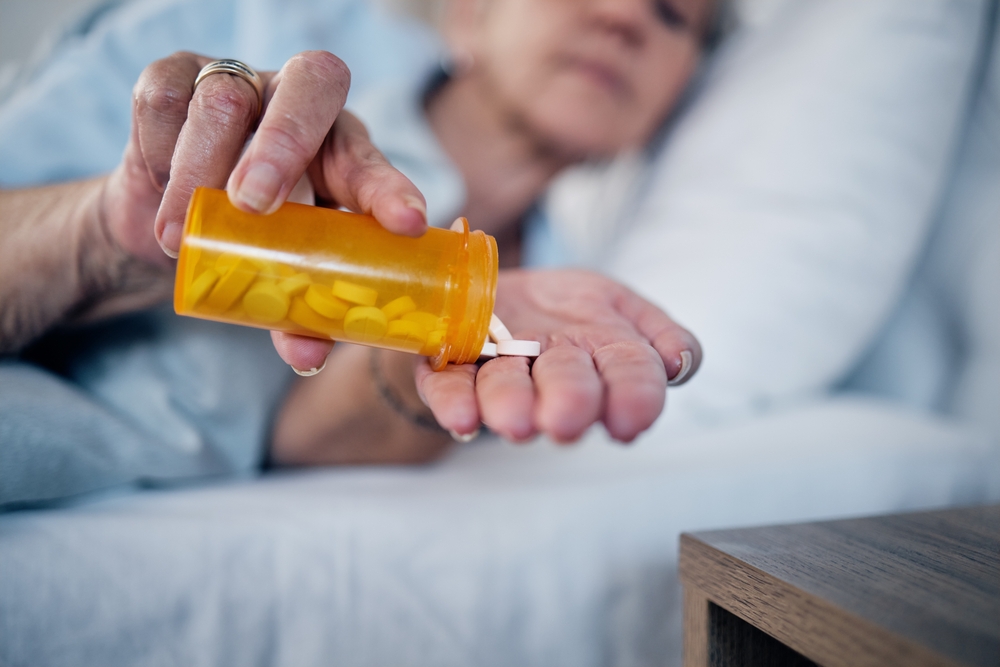What’s included?
- Introduction
- Does Dry January work?
- Do I have an alcohol dependency?
- Is Dry January good for me?
- How can Delamere help beyond Dry January?
Giving up alcohol can never be a bad thing, can it? You can save money, lose weight, and improve your overall health. For people who drink to excess it can also be an opportunity to reset their relationship with alcohol and return to a more fulfilling life.
However, if you’re one of the 9 million Brits who are attempting Dry January this year you may be wondering how long the benefits will last. Will you be a changed person able to confidently tell your GP you drink under 14 units a week or will it reveal a more serious dependence on alcohol?
The experts at Delamere wellness retreat in Cheshire give their view on the success rates of Dry January and what it means for people who are addicted to alcohol.

Does Dry January work?
Apparently 70% of people are still drinking more healthily after six months of completing Dry January. That’s according to the concept’s founders, Alcohol Change UK, an independent charity set up to tackle the harms caused by alcohol on society.
On their website they pose the question: how can one month have such a long-term impact? Just like giving up smoking, the health benefits of quitting alcohol are fairly immediate. First, let’s look at what happens to the body when you stop drinking for 30 days:
Week one: Improved sleep, mood, and energy.
Week two: Reduced damage to brain and blood vessels.
Week three: Lower blood pressure and improved liver function.
Week four: Better overall physical and mental health.
That said, this is of course based upon someone who drinks moderately, doesn’t have an already damaged liver and isn’t dependent on alcohol. In the case of people suffering with alcohol addiction, there are wider psychological issues that need to be addressed.
A study conducted into the success rates of Dry January showed participants were more likely to complete the challenge if they drank less each day, were less frequently drunk, had better overall mental health and a greater ability to cope. Whereas heavier drinkers were more likely to fail (1).
Worried about alcohol addiction? Speak to the team at Delamere
Do I have an alcohol dependency?
For people who are regularly drinking high volumes of alcohol, Dry January can have bigger implications. If you feel the need to take a break from drinking because you’re concerned about negative effects on your home and work life, it’s best to seek medical help before attempting to quit ‘cold turkey’.
While all drinkers will feel the health benefits of stopping alcohol for one month, the effects can be more pronounced for heavy drinkers, leading to dangerous, sometimes fatal, withdrawal symptoms.
Without proper medical support, your first week of abstinence from alcohol may include hand tremors, cold sweats, fever, nausea, vomiting, headaches, insomnia, loss of appetite, depression, anxiety, seizures, and hallucinations. Not exactly the picture of health you were hoping for.

Symptoms typically peak around 24 to 48 hours after having your last drink and subside within a few days. It’s important to cut down on your drinking gradually to prepare for Dry January if you regularly consume more than the NHS recommended allowance.
If you notice withdrawal symptoms, this could indicate you have developed a dependence on alcohol. You should not stop drinking alcohol suddenly and should stop participating in Dry January. You can still get control over your drinking by asking for help.
Is Dry January good for me?
Taking part in Dry January is a personal choice. It can be positive or negative depending on your individual circumstances, how much you’re currently drinking and whether or not you have a dependence on alcohol.
Dry January can certainly help you assess your relationship with alcohol and may help you to adopt healthier drinking patterns. A paper written on the merits of giving up drinking for one month concluded that participants’ harmful drinking levels dropped by around 50% within 6 to 8 months (2).
Experts agree that challenges like Dry January have multiple health benefits, from lowering blood pressure to reducing your risk of developing diabetes and some cancers. But the positives are difficult to quantify long-term.
There are also other factors that can influence health outcomes. For instance, weight loss could be attributed to increased exercise or a change in diet, rather than giving up alcohol alone.
Dry January could be right for you if you want to:
- Take a short break from alcohol
- Examine your relationship with alcohol
- Refresh your mind and body
- Set yourself an achievable challenge
- Save money in January
- Raise money for charity
- Experience short-term health benefits
Dry January could be harmful for you if:
- You typically drink much more than 14 units per week
- You never have any alcohol-free days
- You are physically or mentally dependent on alcohol
- You suffer from mental health problems, such as anxiety or depression
- You are using alcohol with other substances
- You experience withdrawal symptoms when you stop drinking
Dry January is essentially a short-term fix. By taking a brief hiatus, it would be easy to give yourself free reign for the rest of the year. Which isn’t really addressing your reliance on alcohol. If you have an alcohol addiction, one month’s abstinence isn’t going to be able to undo the years of psychological and mental trauma that is driving you to drink.
How can Delamere help beyond Dry January?
To make real, lasting change to your drinking habits it may be time to call in help from the professionals. A residential stay at Delamere typically lasts 28 days but, with our support, your commitment to abstinence will last a lifetime.
For heavy drinkers, Dry January can be fraught with fear. Concern over the dangers of giving up alcohol alone and self-doubt about the ability to succeed. Often, the drinking cycle begins again because living without alcohol feels physically and mentally too difficult.

At our wellness retreat in Cheshire there are no distractions or temptations. Just the space and time you need to tackle your drinking problems head on. We can support you with a clinical detox, to ensure a safe withdrawal process, and provide one-to-one counselling to get to the root cause of your dependence.
Using a combination of evidence-based psychotherapy, somatic healing techniques and alternative therapies we can help you heal from within. You will walk away with a set of tools and coping strategies that completely reframe your relationship with alcohol and help you move forward free from addiction.
If you need help to cope with alcohol addiction, call us confidentially to speak to a member of the team today.
References
1. Julia de Ternay, J., Leblanc, P., Michel, P. et al. One-month alcohol abstinence national campaigns: a scoping review of the harm reduction benefits. Harm Reduct J 19, 24 (2022).
2. Gautam Mehta et al. Short-term abstinence from alcohol and changes in cardiovascular risk factors, liver function tests and cancer-related growth factors: a prospective observational study. BMJ Open Journals. Vol 8. Issue 5.








